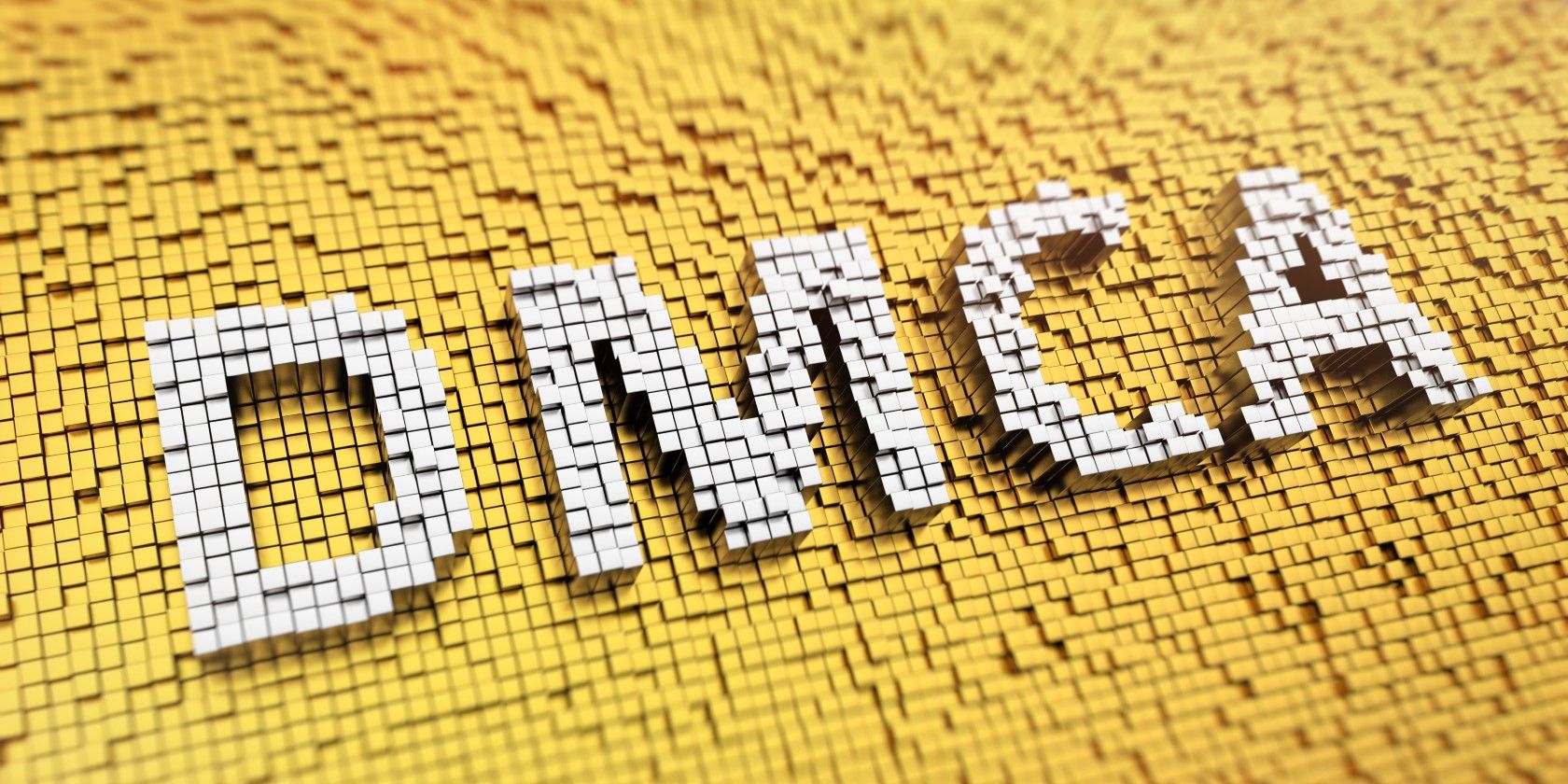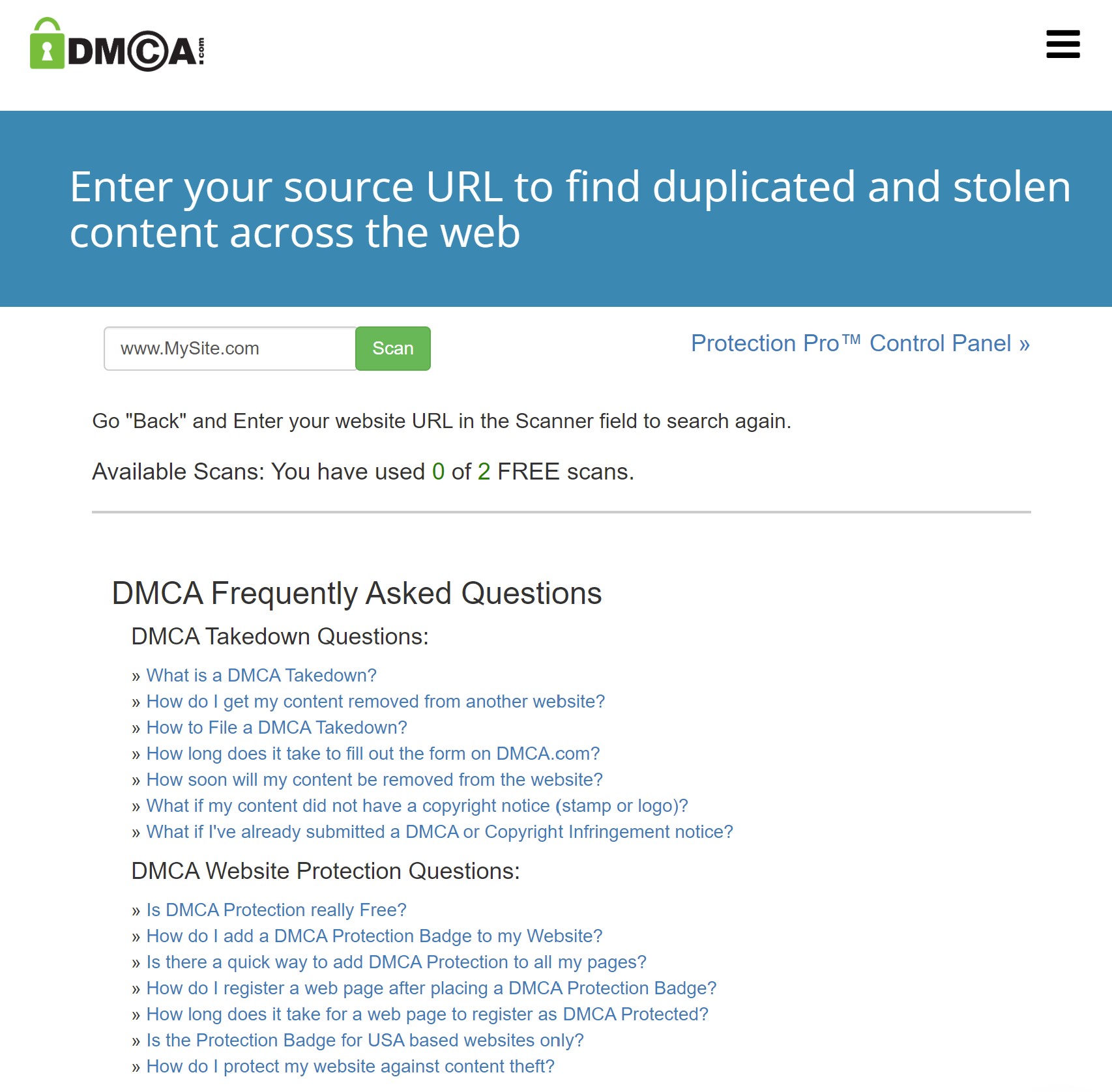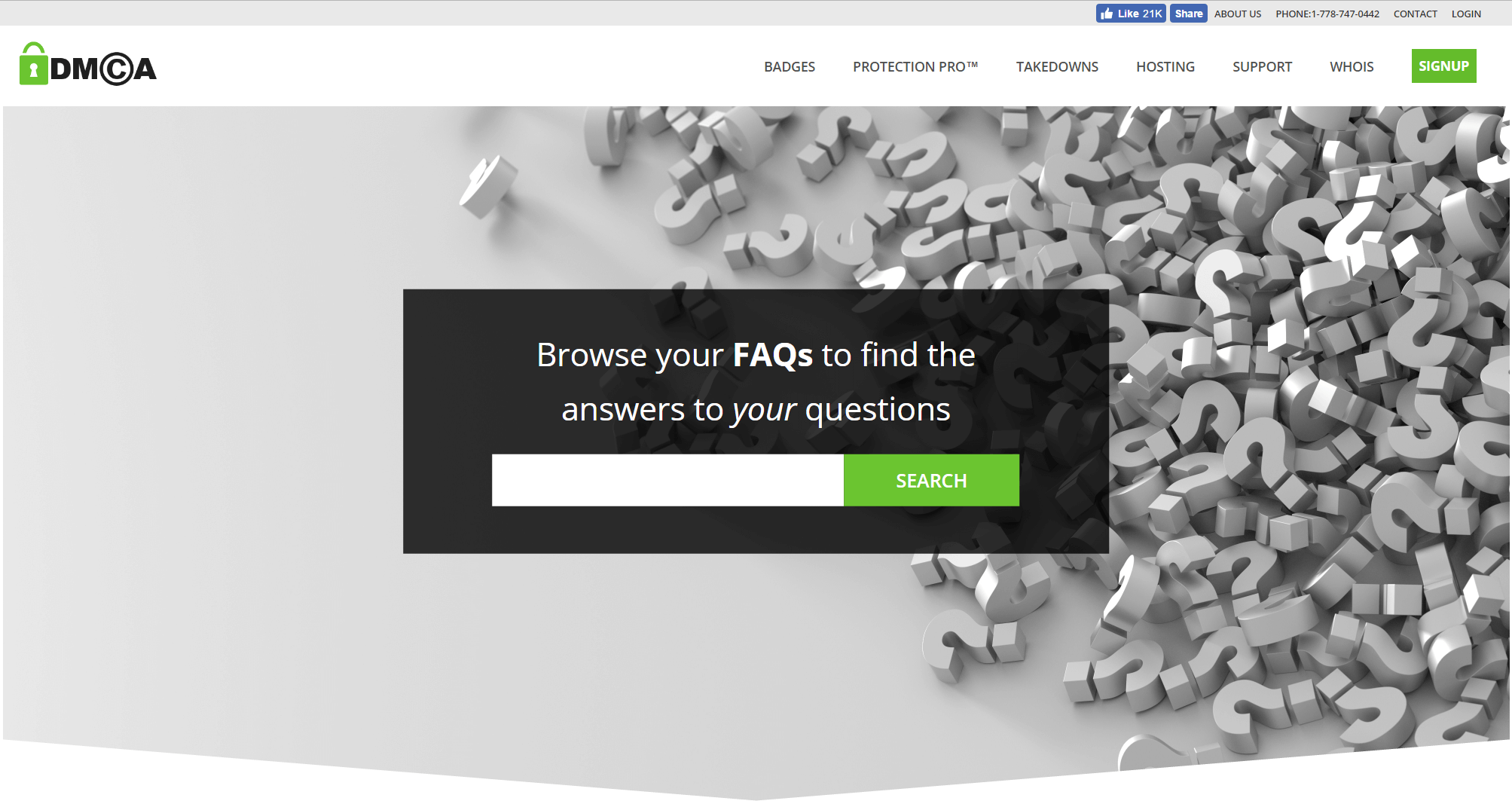So, you're creating content online, sharing your thoughts, your art, or perhaps your business ideas, and you might be wondering how your hard work stays safe. Well, there's a significant piece of legislation, a law really, that helps with this very thing. It's called the Digital Millennium Copyright Act, or DMCA for short. This particular law, you know, it came into being quite some time ago, back in 1998, and it's a part of United States copyright law. It actually puts into practice some ideas from two international agreements, treaties if you will, that were made in 1996 by an organization called the World Intellectual Property Organization, often just called WIPO.
This law, the DMCA, was passed by Congress in 1998, and it was a pretty big deal. It made some important changes to how copyright law works here in the U.S. The main reason for these changes was to deal with the growing relationship between creative works, things like books or music or videos, and the internet. The internet was, you know, really starting to take off back then, and there were new challenges for creators trying to keep control of their stuff online. So, the DMCA stepped in to help bridge that gap, you know, between traditional copyright rules and the brand-new digital world.
Basically, the DMCA is a federal rule that looks at all sorts of copyright concerns that pop up because of new technology and, of course, the internet. It covers things like digital rights, which are, in a way, just the rights you have to your creations when they exist in a digital form. It's a system that tries to make sure creators have some legal muscle to protect their digital creations, but also, it tries to limit how much responsibility online services have when people use those services to share things that might be infringing on someone else's copyright. It's, you know, a bit of a balancing act, really.
Table of Contents
- What is the DMCA?
- Why DMCA Matters for Everyone Online
- The DMCA Takedown Process
- Getting DMCA Help and Protection
- Frequently Asked Questions About DMCA
What is the DMCA?
The Digital Millennium Copyright Act, which is what DMCA stands for, is, in essence, a part of the U.S. copyright law. It's, you know, a defined way to go about getting content removed from the internet. This law, passed in 1998, really came about to protect people who make content online. It helps make sure that original works, things you create yourself, are safeguarded. So, if you've ever wondered how someone gets a stolen video or image taken down from a website, chances are the DMCA is involved.
How It Came to Be
This law, the DMCA, is actually a federal rule that tries to deal with quite a few copyright situations that popped up because of new technology and, of course, the internet. It includes things like digital rights, which, you know, are your rights over your creative works when they are in a digital form. Before this law, it was a bit trickier to figure out how traditional copyright rules applied to something that could be copied and shared so easily online. The internet, as a matter of fact, really changed the game for how information and creative works moved around, making this kind of legal framework pretty necessary.
The DMCA, you know, was an attempt to make digital protection systems something that could be legally enforced. At the same time, it also tried to limit how much responsibility online service providers would have. These are the companies, for example, that users engage with to share material that might be infringing on someone's copyright. It's a rather delicate balance, trying to give creators power while not making internet companies responsible for every single thing their users might do. This balance is, you know, a very important part of how the internet works today, keeping things more or less fair for everyone.
The Balancing Act of DMCA
The DMCA is a law that, in a way, stops you from just taking other people's content online without permission. It also, quite importantly, protects websites from getting into legal trouble for just hosting content that their users might have, you know, taken from someone else. It's a crucial U.S. law that tries to keep things fair between protecting copyright, limiting the responsibility of online service providers, and making sure the public can still get to information. This balancing act is, you know, pretty central to how content is shared and consumed on the internet today, trying to avoid chaos but also allow for a lot of freedom.
This law, the Digital Millennium Copyright Act, really expanded on copyright laws that were already in place. It did this to deal with all the new issues that came up because of new technology. You can, you know, get the full scoop on the main points of the DMCA and learn what kinds of actions online are covered by it. It's not just about taking things down; it's also about understanding what's allowed and what's not. The aim of the DMCA is, you know, to balance the rights of creators with the way the internet works, which is, you know, a pretty big job for any law.
Why DMCA Matters for Everyone Online
So, the DMCA, it's, you know, a big deal for just about anyone who spends time online, whether you're making stuff or just looking at it. It's a law that, you know, protects content creators online. This means if you create something original, like a song, a video, a photograph, or even just some written text, the DMCA helps you protect that work. It helps ensure that your efforts aren't simply, you know, taken and used by others without your permission. This protection is, actually, a cornerstone of the modern digital economy, allowing artists and businesses to feel more secure in sharing their work.
It's, you know, a system that tries to give creators some peace of mind. Without something like the DMCA, it would be much harder to stop people from simply copying and sharing your original creations. Think about it: if you spend hours or days or even weeks making something, you'd want some way to make sure you get credit, or that it's not used in ways you don't approve of. The DMCA, in a way, gives you a tool to do just that, offering a legal pathway to address unauthorized use. This is, quite simply, a very important part of keeping the internet a place where creativity can, you know, really thrive.
For Content Creators
If you're a content creator, the DMCA is, you know, like a shield for your original works. It helps make sure that if someone, say, takes your unique video from your YouTube channel and puts it on their own, you have a clear way to ask for it to be removed. Companies like DMCA.com, for example, help creators on platforms such as OnlyFans, Patreon, and Chaturbate protect their work from theft and distribution that isn't allowed. They offer services that, you know, make it easier to take control of your content, especially on platforms where your work might be particularly vulnerable to being copied.
DMCA.com has, you know, built a system for handling takedown cases that makes the whole process very efficient, fast, and effective for getting content removed. Whether you have just one instance of your work being taken or, you know, a million cases, they can help. This kind of service is, actually, pretty vital for creators who might not have the legal know-how or the time to pursue every instance of infringement themselves. It's about giving creators the tools to, you know, really protect what's theirs in a world where digital copying is, sadly, very easy to do.
For Online Service Providers
Websites and online service providers, too, have a role to play and protections under the DMCA. A website can, you know, protect itself under the DMCA by having a clear DMCA policy. This policy should, basically, include instructions on how someone can report alleged infringement. It also needs to explain how the website will handle such reports. This is, in a way, how websites avoid being held legally responsible for everything their users post. It's about being a good host, you know, and having a system in place to respond when someone says their copyright has been broken.
This kind of policy is, you know, very important for any platform that hosts user-generated content. If a website has a proper DMCA policy and follows it, they are usually protected from liability for the infringing actions of their users. It means they don't have to, you know, constantly police every single piece of content uploaded by millions of users. Instead, they provide a mechanism for copyright holders to notify them, and then they act on those notifications. This helps keep the internet open for sharing, while still, you know, respecting copyright. Learn more about online copyright law on our site.
The DMCA Takedown Process
The DMCA takedown process is, in a way, the practical side of the law for creators. It's how you actually get unauthorized content removed from the internet. When someone, you know, finds their original work being used without permission on a website or platform, they can send what's called a DMCA takedown notice. This notice is, basically, a formal request to the website or online service provider to take down the infringing material. It's a straightforward process, in some respects, designed to be accessible to creators without necessarily needing to go to court right away. This is, you know, a very common way to handle content theft online today, as of June 2024.
The notice usually needs to include specific information, like proof that you own the copyright to the material, where the infringing content is located online, and a statement that you believe the use is not authorized. It's, you know, a bit like filling out a form, making sure all the necessary details are there. Once the website gets this notice, they are, typically, required to act promptly to remove or disable access to the content. This is how the DMCA tries to, you know, balance the rights of creators with the operations of online platforms, creating a clear pathway for resolution.
Reporting Alleged Infringement
For someone who discovers their content has been taken, reporting the infringement is, you know, the first big step. You'd typically find the contact information for the website's designated DMCA agent, often listed in their terms of service or privacy policy. Then, you'd send them your takedown notice. Companies like DMCA.com provide internet copyright and DMCA-related services to, you know, thousands of businesses and people around the world. They help protect over 85 million web pages every day, which is, you know, a pretty significant number. This shows just how much content is out there and how often these kinds of issues can come up.
They even offer, for example, a "DIY takedown" service where you can, you know, handle unlimited do-it-yourself takedown notices for a set price per site. This means you can manage the process yourself, but with some guidance and tools. It's a way to empower creators to take action directly. You can, too, get a free DMCA.com protection badge for your site. If someone then steals your content, DMCA.com will, you know, do the takedown for free, though, of course, terms and limits apply. This is, you know, a pretty appealing option for many creators who want a bit of extra security for their digital work.
Website Protection Policies
As mentioned earlier, a website can, you know, protect itself under the DMCA by putting a DMCA policy into place. This policy is, basically, a public statement about how the site handles copyright infringement. It should, you know, clearly explain how users or copyright holders can report content they believe is infringing. It also outlines the steps the website will take once a report is received. This transparency is, in a way, very important for both users and copyright holders, letting everyone know what to expect. It helps foster, you know, a more orderly environment for content sharing.
Having such a policy and, you know, actually following it, is what gives online service providers what's called a "safe harbor" under the DMCA. This means they are protected from being sued for copyright infringement committed by their users, as long as they respond appropriately to valid takedown notices. It's a system that, you know, encourages websites to be responsible without making them liable for every single piece of content uploaded by their vast user bases. This is, actually, a pretty smart way to manage the complexities of user-generated content on the internet, allowing for growth while still, you know, having a mechanism for addressing issues.
Getting DMCA Help and Protection
For creators and website owners alike, getting help with DMCA matters is, you know, a real option. Services exist that specialize in copyright protection and content removal. These services can, for example, guide you through the process of filing a takedown notice or help you understand your obligations as an online service provider. They can, in a way, simplify what might seem like a rather complex legal process. This support is, quite often, invaluable for those who are not legal experts but need to protect their digital assets. It's about, you know, making the law work for you in a practical sense.
Companies like DMCA.com, for instance, offer a range of services designed to help. They can, you know, assist with getting DMCA badges for your site, which can act as a visual deterrent to content theft. They also provide compliance services, helping websites ensure their DMCA policies are up to snuff. And, of course, they offer content protection services, actively helping creators track and remove their stolen work from the internet. This kind of comprehensive support is, you know, very helpful in today's digital landscape, where content can spread so quickly and widely. You can, you know, browse their frequently asked questions (FAQs) to find out more about their takedowns, content infringement, and copyright protection offerings. This is, in a way, a very accessible path for many people seeking to protect their creative output online. You can also learn more about how copyright works on this page .
Frequently Asked Questions About DMCA
Here are some common questions people often ask about the DMCA:
What does DMCA mean?
DMCA stands for the Digital Millennium Copyright Act. It's, you know, a U.S. law that makes it a crime to create or share technology or services that help with copyright infringement. It also, basically, provides a way for copyright holders to get their stolen content removed from the internet. This law, you know, is a very important part of how copyright works in the digital world, trying to keep things fair for creators.
How does the DMCA protect original works?
The DMCA protects original works by giving copyright holders a legal way to request the removal of their content if it's been used without permission online. It allows creators to send a "takedown notice" to websites or online service providers that are hosting the infringing material. This process is, you know, designed to be a quicker and more efficient way to address copyright violations than, say, going straight to court. It's, basically, a tool for creators to enforce their rights over their own creations, ensuring they have some control over how their work is used online.
What does DMCA.com do?
DMCA.com helps creators and businesses protect their online content. They provide services like building and managing takedown cases to remove stolen content from the internet. They also offer compliance services for websites to help them set up proper DMCA policies and protect themselves from liability. This company, you know, helps creators on platforms like OnlyFans and Patreon protect their work from theft. They also provide free protection badges for websites, which can, you know, help deter content theft. It's, you know, a comprehensive service for online content protection, helping many people every day.



Detail Author:
- Name : Derek Stehr
- Username : roman.beier
- Email : rbuckridge@fritsch.net
- Birthdate : 1970-09-04
- Address : 420 Williamson Pines Lake Desireefurt, MN 82726-0104
- Phone : +1-239-982-6886
- Company : Kihn-Maggio
- Job : Physical Scientist
- Bio : Optio repellendus enim molestiae id harum culpa. Ducimus quis sed eveniet ut repellendus tempore et. Saepe et est dolorum quia explicabo eligendi illo qui. Adipisci delectus perferendis dicta.
Socials
instagram:
- url : https://instagram.com/rspinka
- username : rspinka
- bio : Quis molestias beatae unde animi impedit cupiditate. Repellendus ea maxime voluptas quis.
- followers : 6462
- following : 278
tiktok:
- url : https://tiktok.com/@reggie_official
- username : reggie_official
- bio : Rerum aut et rerum ipsam sint quia.
- followers : 1970
- following : 2066

